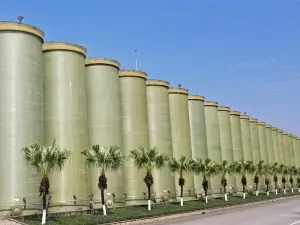
-
 Afrikaans
Afrikaans -
 Albanian
Albanian -
 Amharic
Amharic -
 Arabic
Arabic -
 Armenian
Armenian -
 Azerbaijani
Azerbaijani -
 Basque
Basque -
 Belarusian
Belarusian -
 Bengali
Bengali -
 Bosnian
Bosnian -
 Bulgarian
Bulgarian -
 Catalan
Catalan -
 Cebuano
Cebuano -
 China
China -
 China (Taiwan)
China (Taiwan) -
 Corsican
Corsican -
 Croatian
Croatian -
 Czech
Czech -
 Danish
Danish -
 Dutch
Dutch -
 English
English -
 Esperanto
Esperanto -
 Estonian
Estonian -
 Finnish
Finnish -
 French
French -
 Frisian
Frisian -
 Galician
Galician -
 Georgian
Georgian -
 German
German -
 Greek
Greek -
 Gujarati
Gujarati -
 Haitian Creole
Haitian Creole -
 hausa
hausa -
 hawaiian
hawaiian -
 Hebrew
Hebrew -
 Hindi
Hindi -
 Miao
Miao -
 Hungarian
Hungarian -
 Icelandic
Icelandic -
 igbo
igbo -
 Indonesian
Indonesian -
 irish
irish -
 Italian
Italian -
 Japanese
Japanese -
 Javanese
Javanese -
 Kannada
Kannada -
 kazakh
kazakh -
 Khmer
Khmer -
 Rwandese
Rwandese -
 Korean
Korean -
 Kurdish
Kurdish -
 Kyrgyz
Kyrgyz -
 Lao
Lao -
 Latin
Latin -
 Latvian
Latvian -
 Lithuanian
Lithuanian -
 Luxembourgish
Luxembourgish -
 Macedonian
Macedonian -
 Malgashi
Malgashi -
 Malay
Malay -
 Malayalam
Malayalam -
 Maltese
Maltese -
 Maori
Maori -
 Marathi
Marathi -
 Mongolian
Mongolian -
 Myanmar
Myanmar -
 Nepali
Nepali -
 Norwegian
Norwegian -
 Norwegian
Norwegian -
 Occitan
Occitan -
 Pashto
Pashto -
 Persian
Persian -
 Polish
Polish -
 Portuguese
Portuguese -
 Punjabi
Punjabi -
 Romanian
Romanian -
 Russian
Russian -
 Samoan
Samoan -
 Scottish Gaelic
Scottish Gaelic -
 Serbian
Serbian -
 Sesotho
Sesotho -
 Shona
Shona -
 Sindhi
Sindhi -
 Sinhala
Sinhala -
 Slovak
Slovak -
 Slovenian
Slovenian -
 Somali
Somali -
 Spanish
Spanish -
 Sundanese
Sundanese -
 Swahili
Swahili -
 Swedish
Swedish -
 Tagalog
Tagalog -
 Tajik
Tajik -
 Tamil
Tamil -
 Tatar
Tatar -
 Telugu
Telugu -
 Thai
Thai -
 Turkish
Turkish -
 Turkmen
Turkmen -
 Ukrainian
Ukrainian -
 Urdu
Urdu -
 Uighur
Uighur -
 Uzbek
Uzbek -
 Vietnamese
Vietnamese -
 Welsh
Welsh -
 Bantu
Bantu -
 Yiddish
Yiddish -
 Yoruba
Yoruba -
 Zulu
Zulu
insulated frp covers
The Benefits and Applications of Insulated FRP Covers
In recent years, the demand for advanced materials in various industrial applications has surged, with fiberglass reinforced plastics (FRP) emerging as a favored choice for many engineers and designers. Among the various forms of FRP products, insulated FRP covers have gained significant attention due to their exceptional properties and versatility. This article explores the benefits of insulated FRP covers and their potential applications across different industries.
Understanding FRP and Insulation
Fiberglass reinforced plastics, commonly known as FRP, are composite materials made from a polymer matrix reinforced with fiberglass. This combination results in a material that is lightweight, durable, and resistant to corrosion. These features make FRP an excellent choice for applications where traditional materials might fail under harsh environmental conditions.
Insulated FRP covers take this a step further. By incorporating layers of insulation, these covers are designed to minimize heat transfer. This characteristic is particularly important in industries that require temperature regulation, such as food processing, pharmaceuticals, and chemical manufacturing.
Benefits of Insulated FRP Covers
1. Energy Efficiency One of the primary advantages of insulated FRP covers is their ability to maintain temperature, which leads to significant energy savings. In processes that involve heating or cooling, maintaining a stable temperature not only enhances efficiency but also reduces energy consumption. This results in lower operating costs and a smaller carbon footprint.
2. Corrosion Resistance Unlike metal covers, insulated FRP covers do not corrode when exposed to moisture, chemicals, or extreme weather conditions. This longevity ensures that they remain effective and reliable, reducing maintenance costs and the frequency of replacements.
3. Lightweight and Easy to Install Weighing considerably less than traditional metal covers, insulated FRP covers are easier to handle and install. This can lead to reduced labor costs and quicker installation times, which are crucial in fast-paced industrial settings.
4. Customizability Insulated FRP covers can be easily customized to meet specific shapes, sizes, and insulation requirements. This flexibility allows businesses to tailor solutions that fit seamlessly into their existing infrastructure, ensuring optimal performance.
insulated frp covers

5. Safety and Ergonomics The non-conductive properties of FRP materials offer safety advantages in environments where electrical hazards may exist. Additionally, the seamless design of insulated FRP covers minimizes sharp edges and potential injuries, making them a safer alternative for workers.
Applications of Insulated FRP Covers
The applications for insulated FRP covers are vast and varied. Here are a few notable examples
- Food and Beverage Industry In food processing, temperature control is critical for food safety and quality. Insulated FRP covers can help maintain the necessary temperature in storage tanks and processing equipment while offering protection against contaminants.
- Chemical Processing The chemical industry often deals with hazardous substances that require secure containment. Insulated FRP covers protect these materials while preventing heat loss or gain that could affect chemical reactions.
- Water Treatment Facilities In water treatment plants, insulated FRP covers can help maintain the temperature of treated water and protect against external pollutants, ensuring the integrity of the water supply.
- HVAC Systems Insulated FRP covers are also useful in heating, ventilation, and air conditioning (HVAC) systems, where they help maintain efficiency and performance by minimizing energy losses.
- Aerospace and Marine Applications The lightweight nature of FRP makes it ideal for use in aerospace and marine environments, where factors like weight, durability, and resistance to corrosion are paramount.
Conclusion
As industries continue to evolve, the need for materials that meet specific operational demands becomes increasingly important. Insulated FRP covers exemplify how advanced materials can enhance efficiency, safety, and sustainability across various applications. By investing in insulated FRP solutions, companies can not only improve their operational performance but also contribute to a greener future. With their practicality, versatility, and durability, insulated FRP covers are poised to become an essential component in the toolkit of modern manufacturing and processing.









